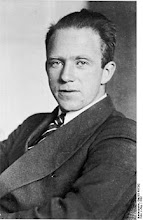At 3:15 this morning it was exactly 68 years ago that “The Leader”, Adolph Hitler, sent over three million men (and perhaps even a few women) into the territory of the Soviet Union in the single greatest, and ultimately most costly, military action ever undertaken. The attack took place over a 1,800 mile front and involved thousands upon thousands of planes, tanks, artillery pieces and soiled drawers. The Russians, woefully unprepared for the attack, received a complete ass-whooping for the first six months at every turn. Germany and its allies would eventually go on to capture over three million Soviet soldiers and over 500,000 square miles of Russian territory before their advance was halted in December, 1941 on the outskirts of Moscow by the ironic combination of crappy weather and Mongols from the Soviet Union’s Asiatic holdings.
There is a wealth of analysis regarding the underlying rationale for what turned out to be a spectacularly unsuccessful real estate venture, but Hitler himself wrote as early as 1925 about the need for the German people to expand to the east, take the resources of the “inferior” Russian people and drive their “Jewish-Bolshevik” masters from power. While there is a pretty universal consensus that Hitler and his Nazi regime were about as sick and evil as humans come, there is a certain refreshing honesty that sometimes accompanies madness; the Nazis made no secret of their objective of enslaving and murdering the Russians and taking all their land and livestock. By 1941 the German people were so hypnotized by their own arrogance and consumed by the ethical numbness of easy victory that the Nazis no longer needed to cloak their poisonous rhetoric in metaphor and code. They just came right out and said it.
The namesake of this invasion of Russia was Frederick I, Holy Roman Emperor, who was unflatteringly nicknamed Barbarossa, or red beard, by the Italians upon whom he frequently waged war. Ironically, Frederick had no problems with the Russians, probably because they were too busy slugging it out with the Turks who were trying to find a place to settle after being run out of town by the Mongols, who would a century later establish the world’s largest protection racket on the back of the Russians. Frederick did, however, participate in a couple of crusades and died, of all things, by accidentally drowning in a river in what is now Turkey. Frederick was the subject of a familiar mediaeval German legend that he was just sleeping in a cave somewhere and that he would return at some unspecified point in the future to restore Germany to its former greatness. Unfortunately for Hitler, that point didn’t happen to be 1941.
For all the amazing initial success of Operation Barbarossa, the Soviet Union ultimately took every punch the Germans and their Romanian, Hungarian, Slovakian, Croatian, Italian and Finnish allies could throw. Though the invaders encircled entire Russian armies at a turn throughout the summer and fall of 1941, more kept coming, often faster than the fake orgasms in a Jenna Jameson flick. Brave Stalin fretted and became increasingly paranoid as he wandered the Kremlin basement, but the average Russian citizen, who had for many centuries received nothing but the short end of whatever stick he was being beaten with, overcame the incompetence of the leadership and the industrial retardation of Communism and slowly drove the Germans back to Berlin. While casualty estimates for the Second World War vary widely, it is generally accepted that over 20,000,000 Soviet soldiers and citizens died and destruction and devastation resulted on an unimaginable scale. Stalin, who had probably killed almost as many of his own countrymen as the Nazis eventually did, survived and, depending on which theory you subscribe to, either died of a stroke at the age of 74, or died as the result a political assassination by rat poison. I know which position my sense of justice endorses.
History is a wonderful mentor if you pay attention. Hitler, who fancied himself something of a military genius, was a huge fan of Napoleon and was giddy as a school girl when he visited his hero’s tomb after pounding France into submission in 1940. Napoleon, as we know, was also a victim of Russia’s siren call, returning to Paris one step ahead of a coalition of angry former conquests in 1812 after his army of 700,000 men dissolved under the pressure of Russian stubbornness and sub-freezing temperatures. Had Napoleon been anything other than a moldering corpse in 1940, he might have exhorted his young fan to beware the hubris that whispers the iron will of the righteous is superior to the tepid resolve of the heathen and that others are weak because they are different. Napoleon could have told Hitler that a nation’s delusion of moral superiority is nothing that the blood of a few million young men can’t easily wash away.
Monday, June 22, 2009
Subscribe to:
Post Comments (Atom)









No comments:
Post a Comment